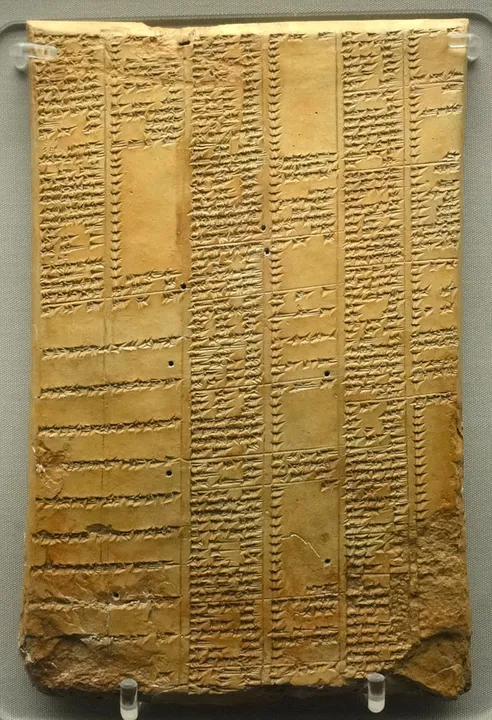Which verb has the most synonyms in English?
-
Mar, 16 2023
-
0 Comments

Exploring the Verb with the Most Synonyms in English
The English language is full of words that have several meanings and several synonyms that can be used interchangeably. But which verb has the most synonyms in English?
There is no definitive answer to this question as the number of synonyms for each verb changes over time. However, one verb that has a wide variety of synonyms is the verb “to go.” The verb “to go” can be used to express a wide range of ideas and emotions, such as walking, running, traveling, and even just plain old leaving.
Some of the synonyms for “to go” are: depart, move, proceed, journey, traverse, head, march, transit, exit, and walk. Each of these words carries a slightly different meaning and can be used to convey a different idea or emotion.
The verb “to go” can also be used in many different contexts. For example, it can be used to describe a physical journey, such as a road trip or a flight, or a metaphorical journey, such as a spiritual experience or a quest for knowledge. It can also be used to describe an emotional journey, such as a journey through grief or an exploration of new ideas.
The verb “to go” is an incredibly versatile verb and has a wide range of synonyms that can be used to express a variety of ideas and emotions. It is one of the most commonly used verbs in the English language and has a long and varied history.
So, while there is no definitive answer to the question of which verb has the most synonyms in English, it is clear that the verb “to go” has a wide variety of synonyms that can be used to express a range of ideas and emotions.
Which verb has the most synonyms in English?
When it comes to synonyms, no verb has more than the verb "be." With over 500 synonyms, this versatile verb is the most flexible word in the English language. It can mean anything from a physical state of existence to a mental or emotional state, and it has a wide range of applications in both spoken and written English. In this article, we'll take a look at a comprehensive list of synonyms for the most versatile verb in English.
Synonyms for Being
The first group of synonyms we'll look at is related to the physical state of being. This includes words like "exist," "occur," and "happen," which are often used to describe things that are present in the present moment. Other words in this group include "endure," "materialize," and "persist."
The second group of synonyms relates to the mental or emotional state of being. Words like "believe," "feel," "know," and "understand" are often used to describe a person's thoughts and emotions. Other words in this group include "suspect," "realize," "assume," and "guess."
Synonyms for Doing
The third group of synonyms is related to action or doing. Words like "accomplish," "conduct," "execute," and "perform" are often used to describe activities. Other words in this group include "achieve," "execute," "implement," and "undertake."
Synonyms for Experiencing
The fourth group of synonyms is related to experiencing something. Words like "encounter," "endure," and "experience" are often used to describe experiences. Other words in this group include "come across," "face," "go through," and "suffer."
Synonyms for Saying
The fifth group of synonyms is related to speaking or saying something. Words like "announce," "declare," "express," and "state" are often used to describe speech. Other words in this group include "articulate," "enunciate," "utter," and "vocalize.
These are just a few of the hundreds of synonyms for the verb "be." No other verb has as many synonyms as "be," which makes it one of the most versatile words in the English language. Whether you're describing a physical state of existence, a mental or emotional state, an activity, an experience, or a spoken statement, you're sure to find the perfect word with this comprehensive list of synonyms for the most versatile verb in English.
Understanding the Power of the Most Synonymous Verb in English
When it comes to the English language, verbs have a very special place. After all, it’s verbs that carry the action and allow a sentence to convey meaning. The more verbs you know, the more expressive and precise your language becomes. But what verb has the most synonyms in English?
The verb with the most synonyms in English is run. It has an impressive list of over 200 synonyms and related words. Here are some of the most common synonyms for run:
- dash
- jog
- sprint
- gallop
- trot
- race
- hurry
- hasten
- dart
- scamper
- scurry
Not only can run be used to describe physical movement, but it can also be used to describe the operation of a machine or the development of an idea. For example, a computer can “run a program,” and an idea can “run its course.” This versatility is what makes run one of the most powerful verbs in English.
Run is also a very flexible verb. It can be used in a variety of contexts, as both a transitive and intransitive verb. It can also be used in both the continuous and perfect tenses, making it even more versatile. Additionally, run can be used to create a range of idiomatic expressions, such as “run of the mill” and “run wild.”
The verb run is so powerful because it is so versatile and has so many synonyms. It can be used to describe physical movement, operations, and ideas. It can be used in a variety of contexts and tenses, and it can also be used to create idiomatic expressions. Understanding the power of run is an important part of mastering the English language.